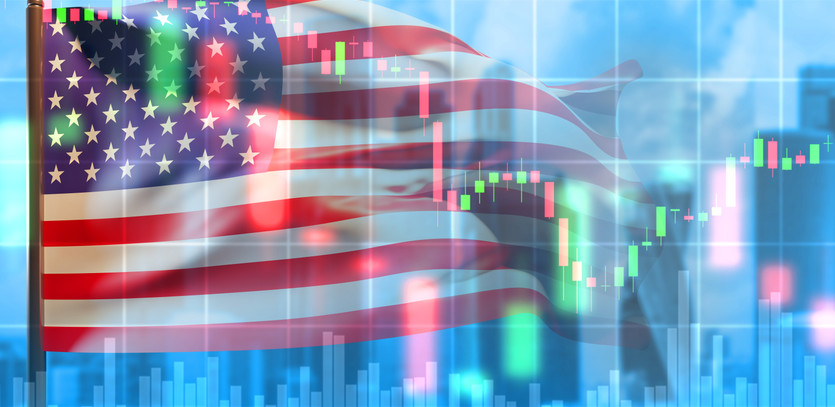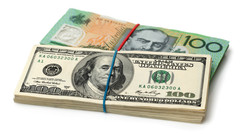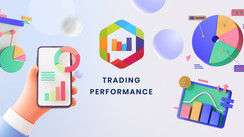The forex market operates on a global scale, featuring remarkable liquidity and immense daily trading volume. Its 24/7 accessibility, extending five days a week, provides the freedom to customize your trading routine, attracting an enormous pool of global investors.
However, the dynamics of forex trading in the U.S. differ significantly from other regions. Despite the forex market's decentralized nature, U.S. traders face more restrictions compared to their counterparts in off-shore countries. Strict regulatory controls define the U.S. forex environment, necessitating brokers to comply with stringent guidelines.
An In-Depth Look at the U.S. Forex Trading Landscape
Forex trading in the United States presents a different picture compared to most other countries around the world. The unique conditions and specific regulatory measures sculpt an environment where the individual trader and investment institutions need to adapt their strategies and approaches to meet these standards.
-
Forex Trading Customers: The U.S. forex trading landscape is categorically defined by the net worth of an individual or institution. In the U.S., anyone with a net worth of less than $10 million is considered a "retail forex trading customer". This classification plays a significant role in shaping the rules and regulations associated with forex trading in the country.
-
Focus on Investor Protection: U.S. law, more so than many other countries, is designed to protect small investors from potential exploitation. This drive is what led to many of the specific regulations that shape the U.S. forex market. The country's regulatory framework and legal system aim to secure a fair playing field for all participants in the market.
-
Global Financial Crisis Impact: The global financial crisis of 2007-2010 played a significant role in influencing the current landscape of the U.S. forex trading industry. In response to the financial downturn, regulatory measures were ramped up, leading to a decline in the number of U.S. forex brokerage firms. The increase in regulation, while providing a higher level of security for traders, also led to an exodus of brokers from the U.S. market.
-
Impact of the Dodd-Frank Act: Introduced as a measure to avoid another global financial crisis, the Dodd-Frank Act had a significant impact on the forex trading landscape in the U.S. The legislation introduced new rules and guidelines for forex brokers and, subsequently, the number of brokerage firms started to decrease. As a result, the U.S.'s market share in the global forex industry reduced. The Act enhanced customer protection but also led to a less competitive trading environment in comparison to other major global markets.
-
Shift in Market Participation: The stricter regulatory environment led to a shift in market participation. Many casual investors found the regulations too burdensome, leading to a drop in retail forex trading. On the other hand, larger financial institutions and more seasoned traders found the secure trading environment appealing, leading to their increased participation.
In summary, the U.S. forex trading landscape is distinctly shaped by a focus on investor protection, the aftermath of the global financial crisis, and the introduction of the Dodd-Frank Act. This landscape presents its own set of challenges and opportunities for forex traders operating within the U.S. market. It's crucial for potential investors to understand these specifics to successfully navigate the U.S. forex market.
The Roles of CFTC and NFA
Founded in 1974, the independent U.S. governmental agency, the CFTC, endeavors to foster transparency and integrity in financial markets. It mitigates risks associated with fraudulent market activities, market condition manipulation, and financial misconduct.
Post the 2007-2010 financial crisis, the CFTC implemented strict operating protocols governing brokers and financial firms. The ultimate goal is to boost trust and confidence among traders regarding the safety of their funds.
To weed out fraudulent activities in the U.S. forex market, the CFTC persistently updates its online scam list and the RED List with the latest deceptive incidents. Any regulated broker violating regulations can face severe fines and sanctions by the agency.
Concurrently, the NFA operates under the CFTC to preserve the U.S. financial markets' integrity. Established in 1982 as a self-regulatory organization, the CFTC mandates forex brokers and other forex firms to register with the NFA. Both agencies ensure adherence to transparency and fraud-free conditions while also handling consumer dispute resolution issues.
However, to operate in the U.S., forex trading brokers must acquire a CFTC registration certificate. The NFA oversees the regulation of these firms, curbing the possibilities of financial malpractice and investor abuse.
A Closer Look at U.S. Forex Trading Regulations
Forex trading in the United States is subject to strict regulations that distinguish it from the trading environment in many other countries. Here's a closer look at the key regulatory elements:
Regulatory Bodies and Their Roles
The U.S. Forex market is regulated by two main bodies:
-
Commodity Futures Trading Commission (CFTC): This government agency oversees the Forex market, and its primary role is to protect market participants from fraud, manipulation, and abusive practices.
-
National Futures Association (NFA): An industry-wide self-regulatory organization for the U.S. derivatives industry, which includes futures contracts and swaps. Forex brokers in the U.S. are members of the NFA and must adhere to their stringent requirements.
These organizations work together to create a secure and fair trading environment.
Minimum Capital Requirements
Different regulations apply to brokers and traders in the U.S. Forex market:
-
Forex Brokers: Brokers are required to have a minimum capital of $20 million. This high requirement ensures the financial stability of brokers and their ability to withstand market fluctuations.
-
Forex Traders: U.S. regulations enforce a 50:1 leverage limit on major currency pairs, and a 20:1 limit on minor pairs. These restrictions limit potential profits for traders, particularly those accustomed to higher leverage ratios available elsewhere.
Segregated Accounts
The U.S. forex regulations necessitate brokers to maintain segregated accounts, ensuring the traders' funds are separated from the company's operating funds. In the event of the broker's bankruptcy, clients' funds remain secure.
FIFO Rule
The First In, First Out (FIFO) rule is a controversial forex trading regulation exclusive to the U.S. It stipulates that traders must close the oldest trades first in instances where several open trades-in-play involve the same currency pairs and are of the same size.
No Hedging Allowed
In U.S. forex trading, 'hedging' or holding simultaneous long and short positions in the same asset at the same time is prohibited. This regulation, established under the National Futures Association (NFA) rules, aims to protect inexperienced traders from potential large losses.
Impact on U.S. Forex Traders
While these regulations aim to protect traders and the market's integrity, they have notable impacts on market participants:
-
Limited Broker Options: Due to the high capital requirement, fewer brokers can operate in the U.S. market, limiting the options for U.S. traders.
-
Limited Market Access: The leverage restrictions can impact individual traders, especially those without the capital to meet these requirements.
-
Reduced Risk and Enhanced Protection: Despite the limitations, these regulations can provide U.S. traders with a more secure trading environment compared to other jurisdictions.
Understanding these regulatory elements is crucial for anyone interested in Forex trading in the United States. It's a unique landscape shaped by the aim to protect traders and maintain market integrity, but it also brings unique challenges and limitations.
Conclusion
Forex trading regulations in the U.S. are amongst the strictest worldwide, aiming to protect traders from market manipulation, fraud, and other malpractices. Though these regulations may appear overly restrictive, particularly for experienced traders, they serve to uphold a safe and transparent trading environment.
It's crucial for both beginners and seasoned forex traders to understand the U.S. regulatory landscape thoroughly. By doing so, they can make informed decisions, ensuring alignment with the trading practices and financial goals. Forex trading involves significant risk; hence, partnering with a reputable, regulated broker will add an extra layer of safety. Lastly, remember to stay informed about the latest market news and regulatory updates to successfully navigate the volatile forex market landscape.





